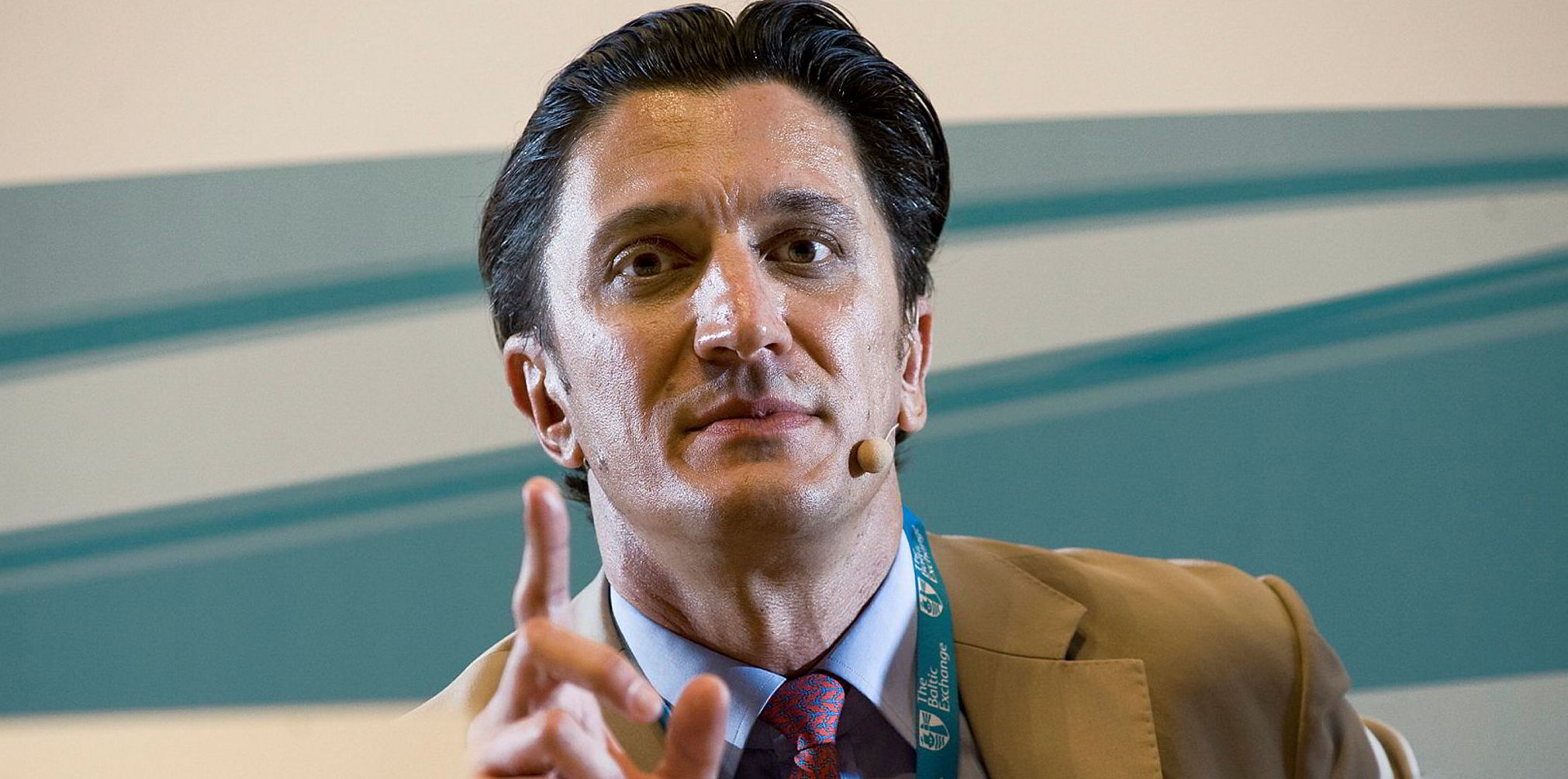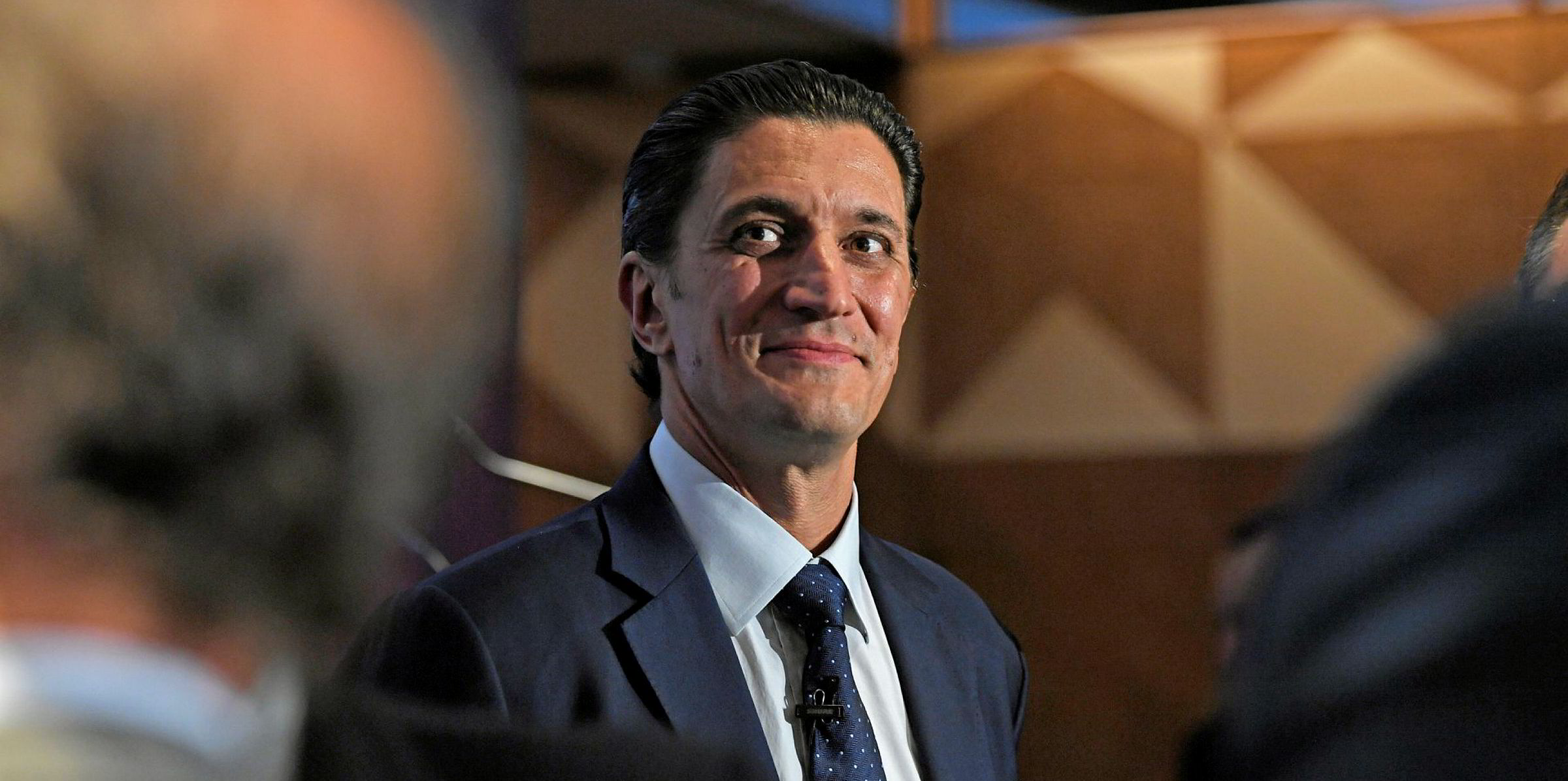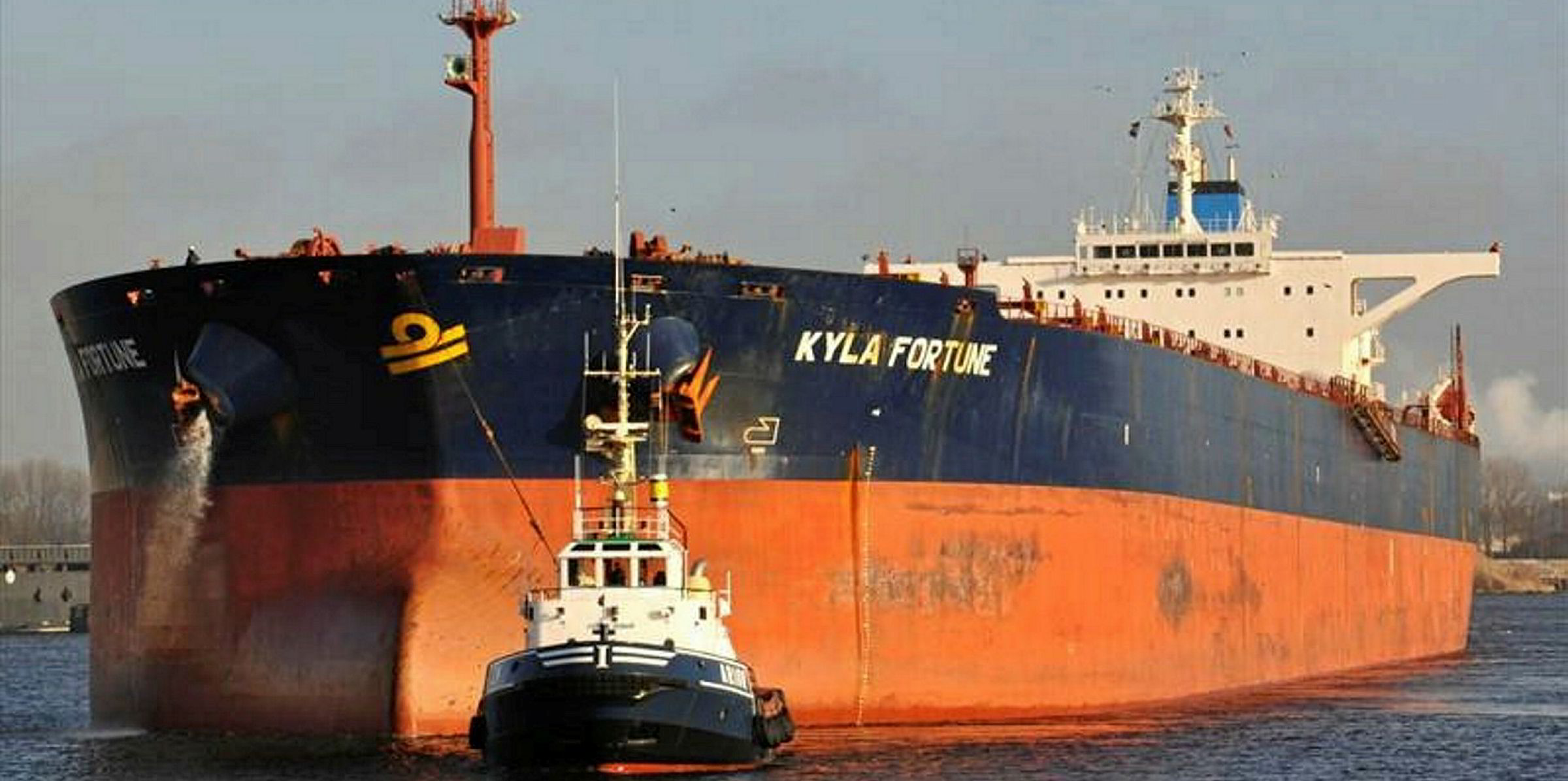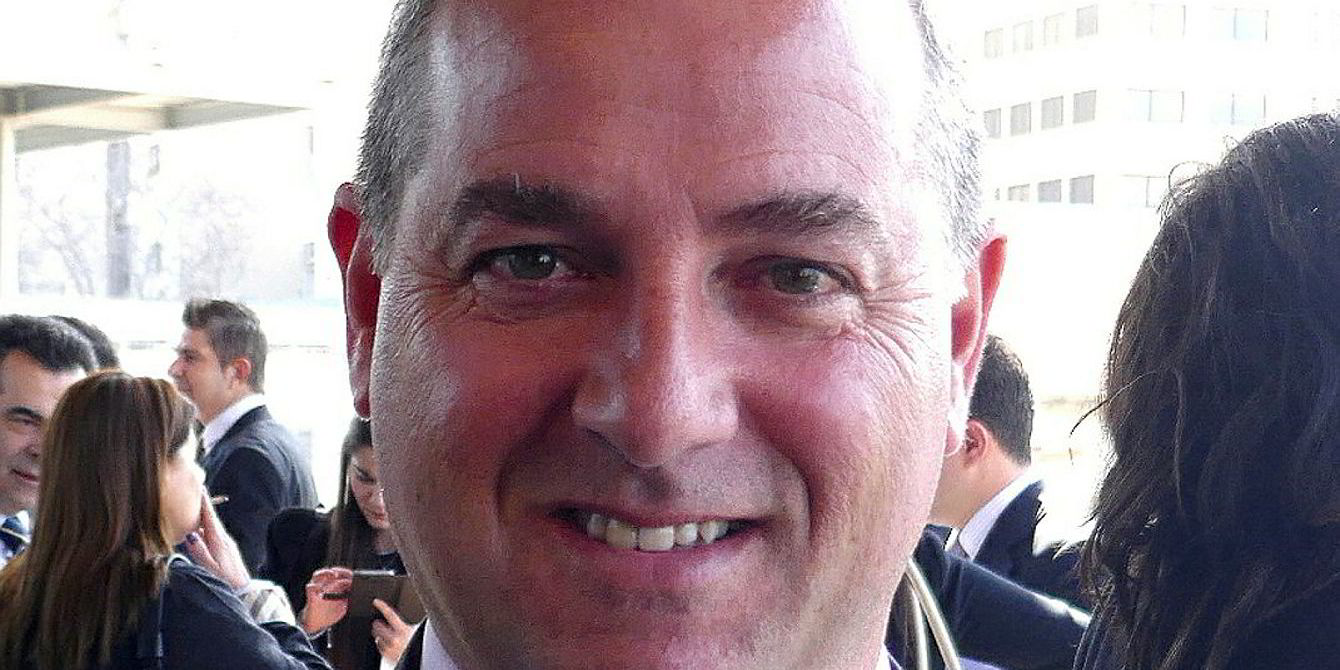It has almost become cliche to describe 2020 as unprecedented, but GoodBulk has learned a thing or two from the turmoil, John Michael Radziwill says.
“We learned that the volatility of the sectors that we operate in is even greater than anyone could have anticipated,” the chairman and chief executive told TradeWinds.
But, he said, it also shows the Oslo-quoted bulker owner’s strategy is on the right path in times when the unexpected should be expected.
“It’s actually reinforced our ethos of keeping a very low cost base and a very disciplined and well-timed, efficient commercial management system,” Radziwill said.
Good timing
“Keeping that ethos going forward is really important, because what we’ve really learned is that the market can whipsaw down to $3,000 [per day] and up to $40,000 fairly quickly, and it’s usually from events that are catalysts that you don’t see coming.
“You can’t really predict, but you can prepare.”
However, Radziwill said GoodBulk fundamentally believes it is possible to make money in any market, as long as the timing is right — as demonstrated by the sale of a capesize bulker this year.
The company made a $2.1m net profit when it sold the 171,000-dwt Aquajoy (renamed Alam Cetus, built 2003) for $10.8m to China’s Seacon Shipping.
“It would be nice for people to understand that this is still an industry that we can actually make money,” Radziwill said.
'What made you think it was going to be so easy?'
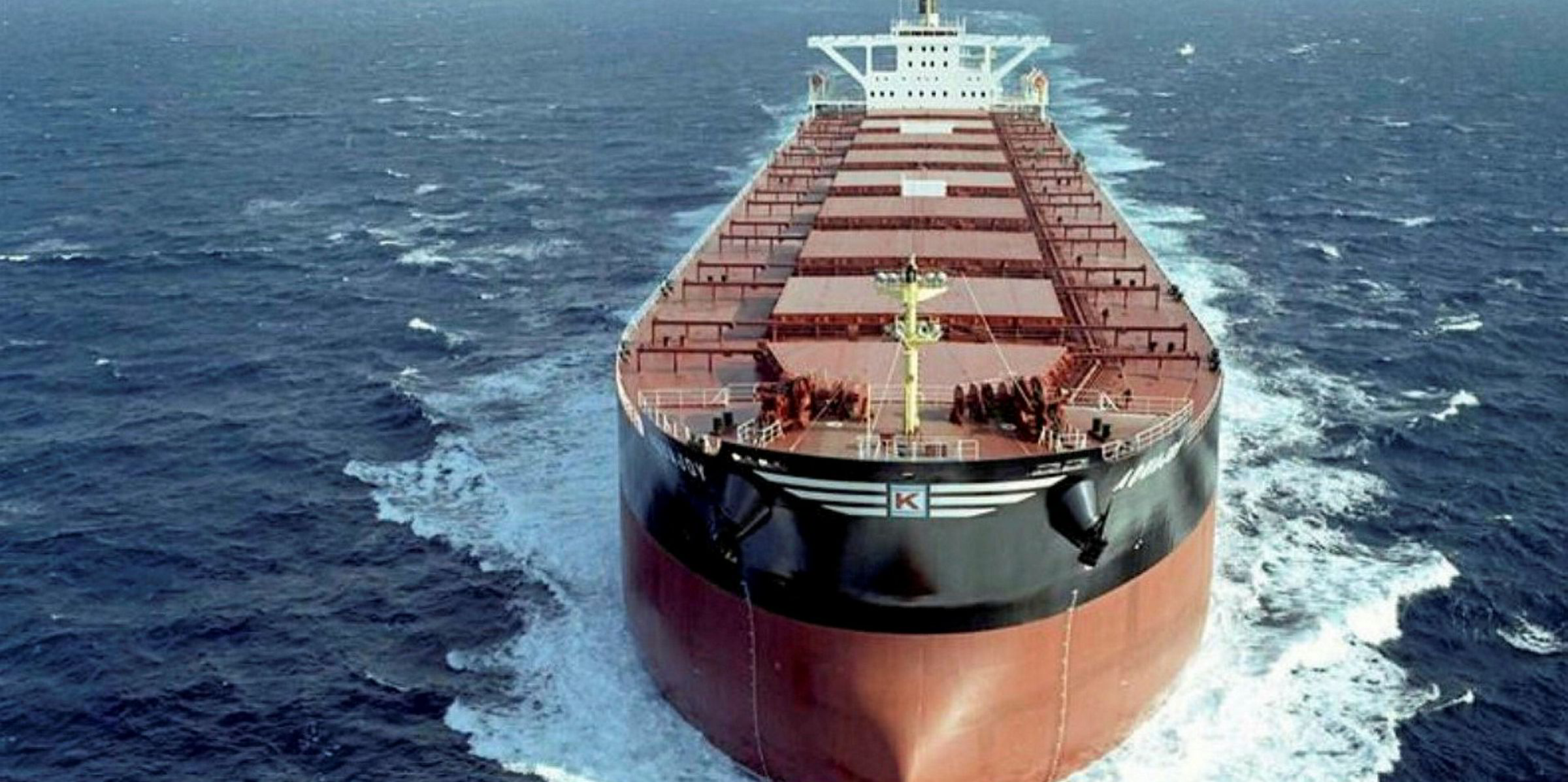
“It’s a little bit more difficult than it used to be, but I remember what an old Israeli shipowner said to me when I said: ‘The market’s very tough’. He looked at me and he said: ‘Well, what made you think it was going to be so easy?’”
Radziwill said the Aquajoy transaction is a good example of GoodBulk fulfilling its aims: “It brings home an 86% profit from when GoodBulk bought the ship in April 2017 — that’s a 23% annual return.
“It’s what I call ‘round-tripping’ it. We bought and sold the ship, and we created a lot of value for our shareholders doing that. That’s been the ethos of all of our portfolio.
“Buying and selling ships is one way we enhance the return of capital for our investors — including myself, by the way, because I am an investor in GoodBulk and all of our portfolio companies.”
GoodBulk’s 23 capesizes and one panamax, all built between 2005 and 2013, are externally managed by C Transport Maritime, which is wholly owned by Brentwood Shipping, which is in turn owned by the Radziwill family
Generating returns is one thing, but weak markets this year have forced GoodBulk to suspend its quarterly dividend, which Radziwill hopes to reinstate soon.
“Last year, we returned almost $100m in dividends, on [roughly] a $450m capital base, which we started with, let’s say, $300m — it’s over 30% dividend yields for 2019,” he said.
“Let’s see how the market pans out, but we would like to do the same thing again, if not give even more out.”
When TradeWinds spoke to Radziwill in March, he said GoodBulk hoped to pick up distressed assets in the market, but he said this week that although this is still the plan, it has not quite panned out as expected so far.
The market can whipsaw down to $3,000 [per day] and up to $40,000 fairly quickly, and it’s usually from events that are catalysts that you don’t see coming
John Michael Radziwill
“We haven’t seen a lot of distress, basically,” he told TradeWinds. “We’re obviously still looking, but we’ve seen asset values have held up against the backdrop of the market. We think that asset values were higher than what the spot and time charter markets were giving.”
Radziwill puts this lack of distress down to lenders’ willingness to negotiate with their borrowers during the “black swan” events of 2020.
“A lot of banks have stayed with their clients, so you haven’t seen them really pulling the plug,” he said. “You’ve also seen Chinese lease financing, which is another source to keep asset values up or prevent distressed sales.
“We’re watching, waiting, hoping, but, at the end of the day, if there’s no distressed sales, we’re happy because we’re always long on tonnage, so it’s a double-edged sword.”
For the dry cargo sector as a whole, things are better during this downturn than they were in the last major depression in 2016, he said.
Shipowners have much stronger balance sheets this time, so he said there has not been as much debt structuring and recapitalisation activity or as many distressed asset sales as four years ago.
'They're too complacent'
Asset prices, too, have not collapsed in the way they did back then.
“I think one of the things we always say is that the ground is crumbling beneath us — so get some steady ground,” Radziwill said. “And that’s always the case. You can never be complacent.
“I think we’ve seen a little bit too much complacency in the market, probably because people have stronger balance sheets, which is not good for the evolution of the industry. I think a lot of people have not done that as well as they could have, so I would like to see the industry evolve a little bit better.
“But then again, looking back on things, you’re always going to say it could have been better, right?”
